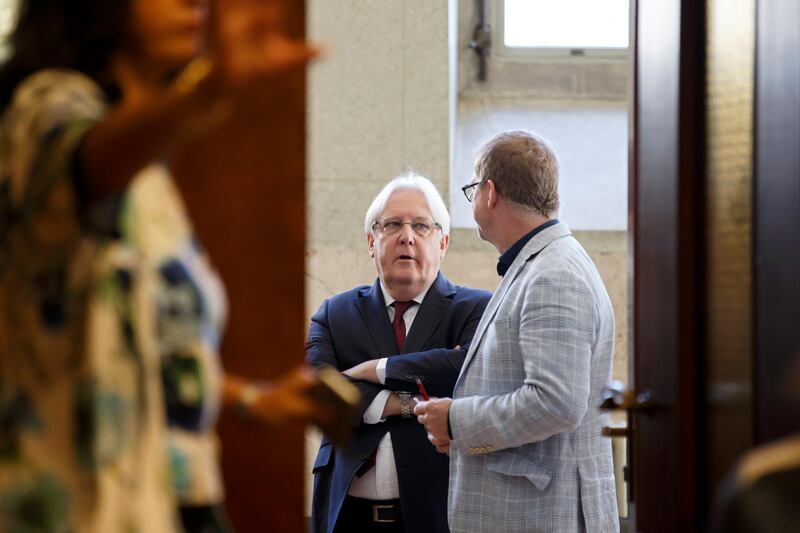Following the failure of talks in Geneva last week, when the Houthi side did not even show up, UN special envoy for Yemen Martin Griffiths is attempting another political push to bring Yemen's warring parties to the table.
Mr Griffiths told the United Nations Security Council on Tuesday that he will soon be visiting Yemen, Oman and Saudi Arabia to discuss the stalemate.
“I will therefore continue my discussions by holding an initial set of visits in the coming days, including to Muscat and Sanaa … I will also meet with the Government of Yemen in Riyadh, and look forward to seeing President [Abdrabu Mansour] Hadi” Mr Griffiths said.
_______________
Read more:
Mukalla: The Yemeni city that defeated Al Qaeda and now needs the world's help
Al Qaeda commander killed by US drone strike in Yemen
_______________
The talks, he said, will promote confidence-building measures including a prisoner exchange, the opening of Sanaa airport and, on the political side, “to secure a firm commitment from the parties to convene for continued consultations”.
SE will visit Muscat and Sana’a, to engage with political leadership there:
— @OSE_Yemen (@OSE_Yemen) September 11, 2018
1- to make progress on key confidence-building measures including prisoners exchange & opening of Sana’a airport;
2- to secure a firm commitment from the parties to convene for continued consultations
A number of Houthi political leaders live in Muscat, including Mohamed Abdel Salam, whom Mr Griffiths met last May.
Despite the failure of the Geneva talks last week, the UN envoy refused to give up on the political process. He thanked members of the Yemeni government for their “constructive participation” and voiced disappointment about the Houthis’ absence.
“When I called for the Intra-Yemeni Consultations in Geneva, I never expected it to be an easy mission,” he told the council.
He warned that “the war has been escalating across all fronts … and humanitarian cost is ever-rising.”
Mr Griffiths said the race now was “to salvage what is left of [Yemeni] state institutions as quickly as possible”, mentioning the steep fall of the Yemeni rial as one symptom of the crisis.
The special envoy echoed concern over military operations on the outskirts of Hodeidah.
“I am relieved that Hodeidah city has not yet suffered the calamity of military operations," he said.
"However, I am concerned that the intensive operations on the outskirts of the city are a gloomy portent for what is to come.”
He added that “fierce fighting has also taken place in several other areas, including Saada, Hajjah, Marib and Taiz governorates, as well as the Saudi-Yemeni border area.”
Mr Griffiths said “the continued launching of attacks by Ansar Allah [Houthis] forces towards Saudi Arabia and the Red Sea shows the continued threat of this conflict towards regional security.”
The envoy is “planning to consult very soon with a number of southern [Yemeni] stakeholders to agree on their meaningful participation in the process.”





